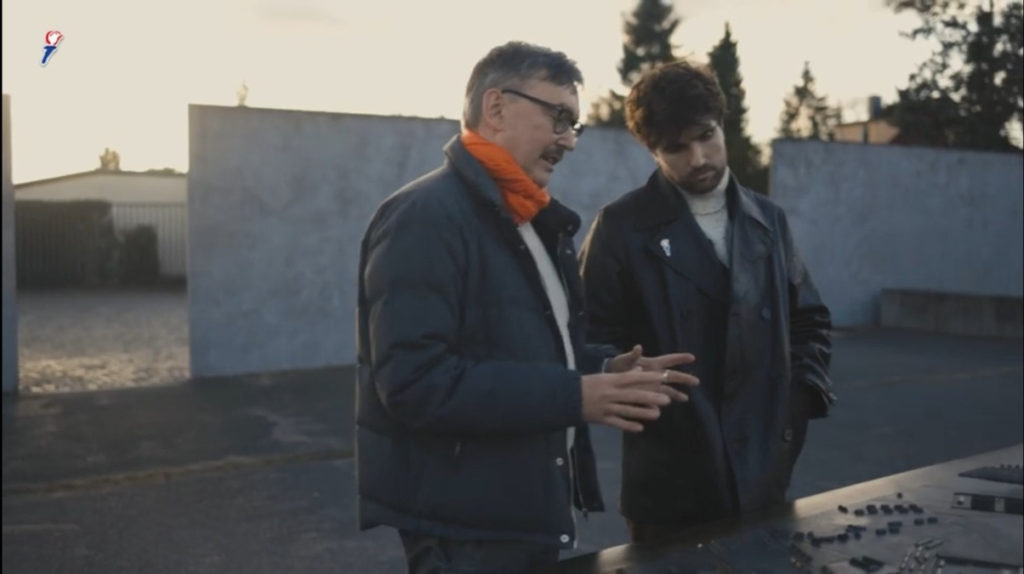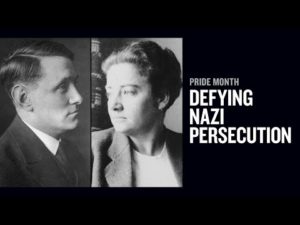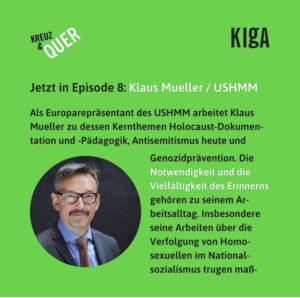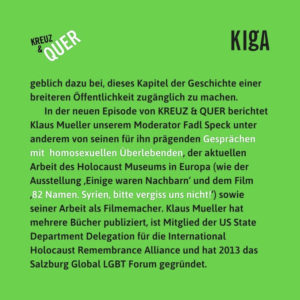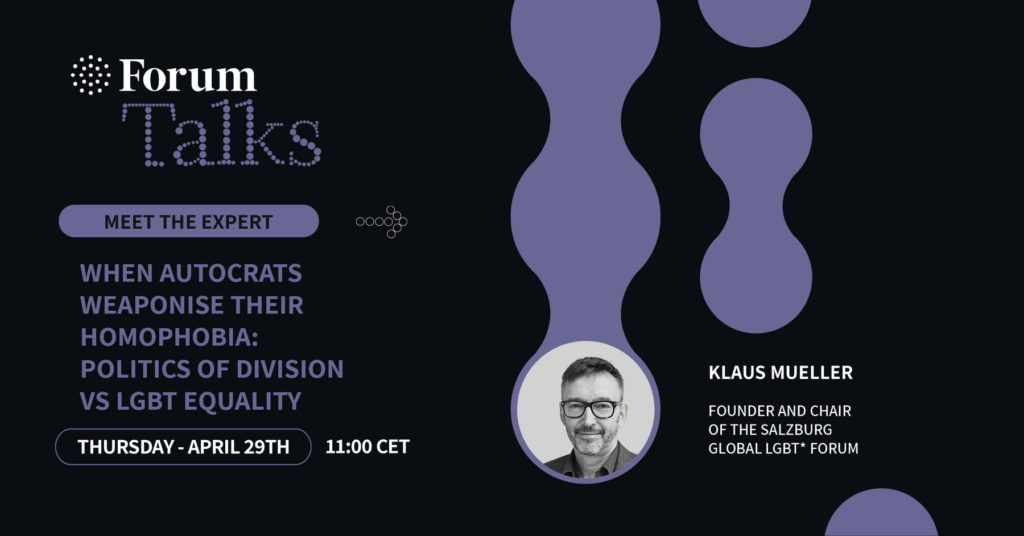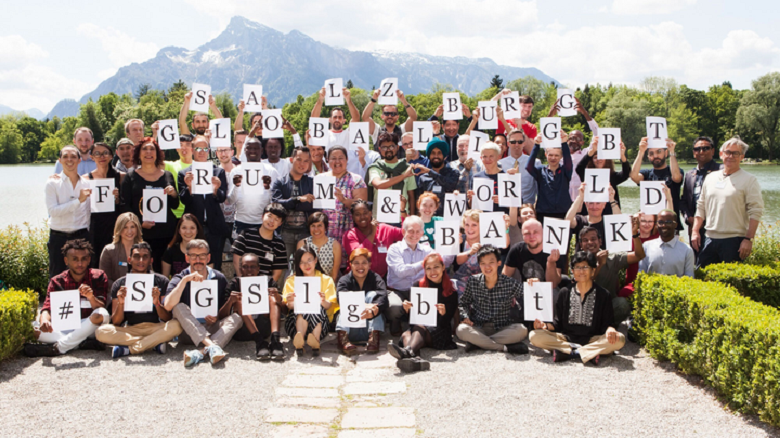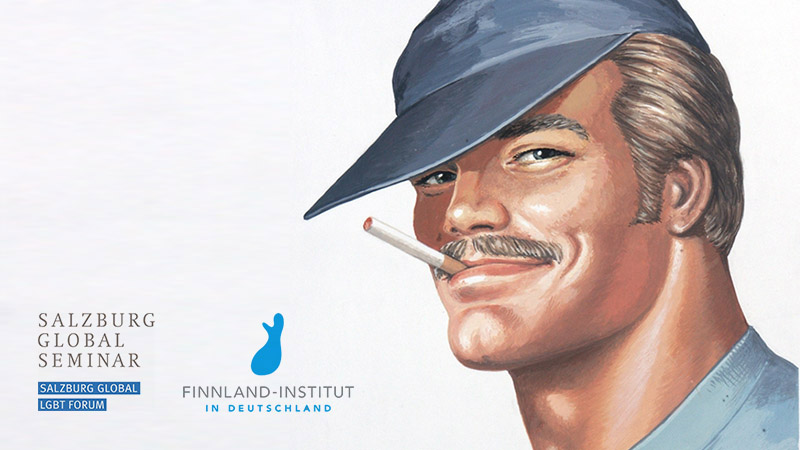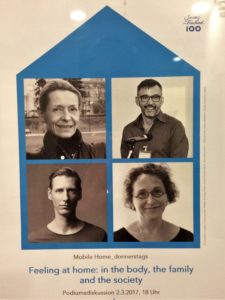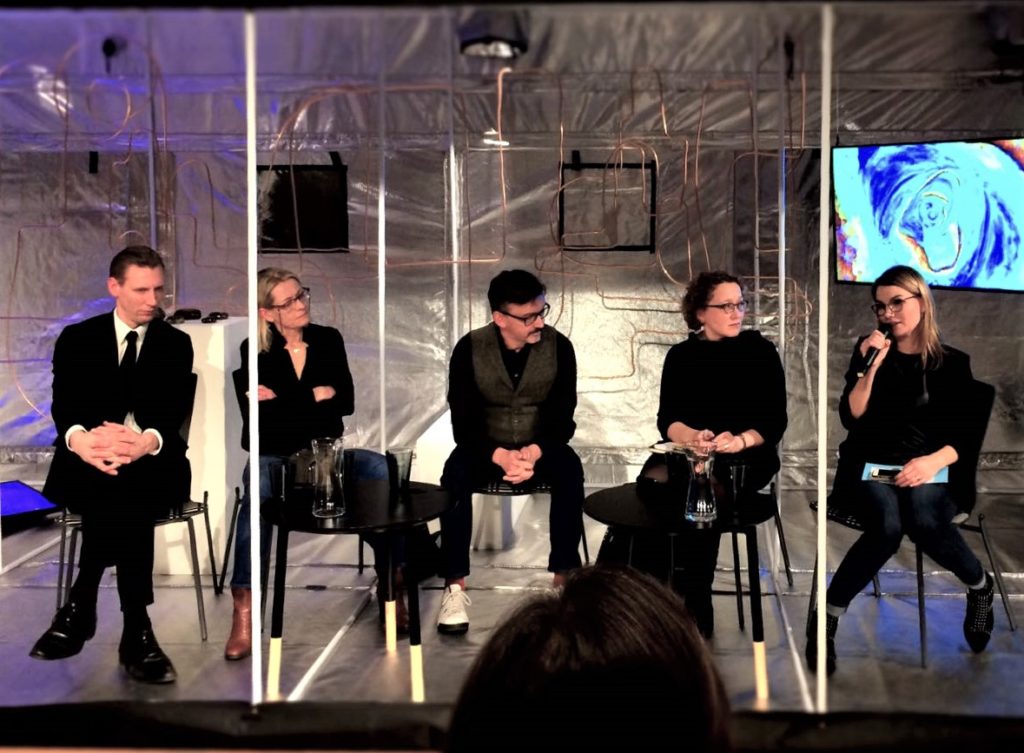In het jaar vóór de ‘Wende’ was een van de opmerkelijkste successen in de boekwinkels van de tanende “Arbeiter- und Bauern Staat” een simpele bundel interviews met homoseksuelen. Veertien mannen vertelden over het roze leven in de grijze Duitse Demokratische Republiek. ‘Ganz normal anders’ luidt de titel, die auteur Jürgen Lemke het boek gaf. Zelfs de enorme oplage van 100.000 exemplaren kon de gretigheid van het publiek na verschijning ervan niet bedwingen; met alleen al 130.000 bestellingen gaf het te verstaan heel wat te willen inhalen. Veertig jaar zwijgen, onder andere. Lemke begrijpt de run op zijn boek nog steeds niet. Op hetzelfde moment dat de SED haar mannen het laatste gevecht voor behoud van de republiek instuurde, zorgde de door Lemke gedramatiseerde versie van ‘Ganz normal anders’ uitgerekend in Erich Honeckers ‘Palast der Republik’ voor uitverkochte zalen. Een voorproefje op de teloorgang van de socialistische, zeg maar preutse gezinsmoraal. In zijn kersverse vaderland is Lemke nu op zoek naar zijn verleden dat keurig in een Stasi-dossier moet zijn samengevat. Een gesprek over de moraal voor en achter de muur.
Het leven bevalt hem wel, in het nieuwe vaderland. Geen geklaag over de ex-Heimat, geen gezeur over het bestaan als ‘Gesamtdeutscher’. Jürgen Lemke geniet van zijn nieuwe leven. “Ik blijf zolang ik leef toch maar een ‘Ossie’ – een Oostduitser -, dat raak je niet kwijt. Maar de eenheid doet mij wel goed, het is een flinke trap tegen je achterste. Wij hebben toch zó weinig meegemaakt, en nu moet alles opeens zoveel sneller, waardoor het leven wat vaart en tempo krijgt. Opeens ben je zelf verantwoordelijk voor wat je doet.” De rol van een DDR-opposant kende volgens Lemke lange tijd een vaste choreografie, geschreven door de staatspartij: “Je wist toch hoe het ging, het was een toestand van verlamming.” Qua uiterlijk is Lemke duidelijk herkenbaar als kind van de tweede duitse staat. Nieuwsgierig en geamuseerd leert hij de regels van het leven in het westen kennen, waar hij sinds het succes van ‘Ganz normal anders’ als V.I.P. benaderd wordt.
GESPREKKEN UIT EEN ANDERE TIJDPERK
Lemkes boek had een aanlooptijd van bijna 10 jaar nodig. Toen hij in 1979 begon vrienden of onbekenden te interviewen was er geen enkele gedachte aan een latere publicatie. Het motief? “Ik weet het niet, ik had gewoon het gevoel dat ik iets moest doen, iets moest vasthouden van het leven hier”, zegt Lemke nu. Zijn grote voorbeeld waren Maxi Wander’s gesprekken met DDR-vrouwen, een jaar eerder onder de titel ‘Guten Morgen, Du Schöne’ gepubliceerd. Deze rechtstreekse documentaire uit het alledaagse, vrouwelijke leven in de mannenstaat was een groot succes geweest: ‘Stukjes realiteit’ waren een vreemde verschijning geworden in de openbare discussie die zich altijd al snel aan de ‘juiste lijn’ moest aanpassen. Lemkes gesprekpartners, zo herinnert hij zich, waren vooral verbaasd over zijn belangstelling – dat zij iets zouden vertellen over hun leven, terwijl het er vaak genoeg juist om draaide alles te verzwijgen.
De veertien gesprekken, een keuze uit meer dan dertig, stemmen dan ook niet vrolijk en lijken uit een totaal ander tijdperk te komen. Uit de gesprekken blijkt dat ondanks de zeer vroege opheffing van de Oostduitse §175 (waarin homoseksuele contacten strafbaar werden gesteld) het imago van de ‘verkeerde liefde’ in de DDR zo laag stond dat haar aanhangers tot ver in de jaren zeventig ondergronds bleven. In de jonge socialistische samenleving vierden een benauwende burgerlijke moraal en zedelijkheid hoogtij.
Een voorbeeld uit het boek over het toezicht dat door vele instanties op het ‘juiste’ politieke en/of morele gedrag werd uitgeoefend. Ieder woonkompleks had een beheerder, die de bewoners in de gaten moest houden. Erich, geboren in 1900 verteld: “Begin jaren vijftig ben ik in deze woning ingetrokken. Voordat ik hier binnenkwam, ging de beheerder van het gebouw van huis naar huis, vooral waar jonge mannen woonden, en vertelde het iedereen: ‘Eerste achterhuis, tweede etage rechts, daar trekt volgende maand ‘zo iemand’ in. Opgepast dus.'”
Volgens Erich een maatregel met onverwachte effecten: “Een betere reclame had hij voor mij niet kunnen maken. Het duurde maar twee weken, en er werd voor de eerste keer – heel schuchter – aan de deur geklopt.” Maar vergeleken met zijn ervaringen onder het fascisme hield leven als homoseksueel in de DDR tenminste geen levensgevaar meer in, resumeert Erich nuchter. Hijzelf werd op 5 juli 1935 opgepakt. Als drager van een roze driehoek bracht hij de volgende tien jaren in concentratiekampen door: Lichtenburg, Esterwegen, Sachsenhausen, Flossenbürg. Erich’s levensverhaal is echter niet al te geliefd tijdens officiële gelegenheden ter herdenking van koncentratiekamp-slachtoffers, vertelt hij in het boek.
In de verhalen spelen verklikkerij, denunciatie en zelfsencuur een belangrijke rol. Joseph, geboren 1944, breekt uiteindelijk zijn opleiding als arts af: een homoseksuele doktor, zo vond hij zelf, dat kan toch eigenlijk niet. De interviews laten zien dat homoseksualiteit door de communistische common sense vanzelfsprekend als een in wezen kapitalistische gevoelstoestand geanalyseerd werd. In het collectief – of dat nu een politieke organisatie als de ‘Vrije duitse jeugd’ of het buurtcollectief was – was voor homos geen plaats gereserveerd. ‘Niet opvallen dus’ was de begrijpelijke reactie daarop van de meeste geïnterviewden.
NIEUWE OPENHEID?
Pas laat in de jaren tachtig veranderde het officiele zwijgen. Lemkes boek sluit aan bij de korte, maar heftige bloei van het thema homo-erotiek in de Oostduitse literatuur. Zinnelijkheid was in de DDR nooit de sterkste kant geweest van de literaire verbeelding, seksualiteit kwam alleen in de biologische leer- en handboeken ter sprake. Variatie op de westduitse permissive society drukte zich vooral uit in het hoge aantal echtscheidingen. Thomas Böhmes gedichtenbundel ‘Die schamlose Vergeudung des Dunkels’ (1985) en Ulrich Berkes literair dagboek over zijn passie voor Lautréamont én zijn vriendje ‘Eine schlimme Liebe’ (1987) lieten een nieuwe openheid in de literatuur zien. En daarmee natuurlijk ook in de SED-cultuurpolitiek. Al eerder had de schrijfster Waltraut Lewin en passant een verhaal over een stormachtige liefdesgeschiedenis tussen twee vrouwen geschreven (‘Dich hat Amor gewiß’, 1983) en was tot haar uiterste verrassing in no time tot fel begeerde spreekster in het dan nog ondergrondse culturele potteuse- en flikkercircuit gepromoveerd.
Niet alleen in de literatuur mocht vanaf 1985 opeens opener over de ‘onnatuurlijke liefde’ gepraat worden. De SED ontdekte de homoseksueel op dat moment als socialistisch medemens en begon diens onderdrukking als onverenigbaar met een socialistische maatschappij te beschouwen. In het Westen werd deze openheid in kringen van homoseksuelen met verrassing ter kennis genomen, maar Lemke bekommentariëert het veeleer als hulpeloze reactie in de bedoeling de schade zoveel mogelijk te beperken: “De SED reageerde alleen nog op maatschappelijke processen, vooral op de pressie van kerkelijke groepen. Onder de bescherming van de protestantse kerk hadden zich in 1982 de eerste homoseksuele groepen geformeerd. Toen werd er nogal heftig op gereageerd. Eddie Stapel, een van de leidende krachten achter de eerste homogroep in Leipzig, kreeg meteen een algemeen reisverbod, ook voor het ‘bevriende socialistische buitenland’. Je moest wel moed hebben om open over je homoseksualiteit te zijn, maar als je dat had kon je de dreiging wel aan. Dat geldt trouwens voor alle ‘afwijkingen’, of je nu geëngageerd was in vredesgroepen of er andere dan de geldende opvattingen over schilderkunst op nahield,” zegt Lemke lakoniek. Voor de nieuwduitse beschuldigingen aan het adres van ‘het systeem’ voelt hij weinig animo. “Wij waren allen daders en slachtoffers”, zegt hij: “Ik ook.”
STASI
De kerkelijke groepen werden door de Stasi goed in de gaten gehouden, tot en met schending van het biechtgeheim. Geen verrassing dus, dat de Stasi zich ook voor ‘Sonntagsclubs’ en anderssoortige bijeenkomsten van homoseksuelen begon te interesseren. “In de tachtiger jaren deden meer en meer homoseksuelen een aanvraag voor een uitreisvisum naar het westen met het argument, dat ze als homoseksueel in de DDR geen toekomst hadden. Velen hadden ook een geliefde in het Westen, vooral in Berlijn werkte de muur als afrodisiacum. De SED zette haar lastige tegenstanders, vergezeld van een groot aantal homoseksuelen, in de laatste jaren voor de omwenteling vaak gewoon over de grens. Een ‘Coming out’ in de aanvraag kon dus misschien de procedure voor een uitreisvisum versnellen. ” Lemke zelf werd een keer of tien door de Stasi als potentiële informant benaderd, maar rekent dat meer tot de alledaagse ervaringen in de DDR. Zeven van de tien burgers – zo schat hij -werden tenminste één keer op vergelijkbare wijze door de Stasi aangesproken. “Als flikker of pot was je natuurlijk altijd interessant voor de Stasi,” vertelt Lemke verder: “Je zou immers gemakkelijker te chanteren zijn, oude mythe, je weet wel.”
Sinds de omwenteling zit Jürgen Lemke in het Berlijnse ‘Bürgercomitee zur Auflösung der Stasi’, waar hij zich met het Stasi-hoofdgebouw in de Normannenstraße bezig houdt. De duitse vereniging zal wel een streep onder het verwerken van het nieuwduits verleden zetten, vreest hij. “Wat de vroegere minister van binnenlandse zaken, Diestel, wist te verhinderen, vindt nu na de vereniging zijn beslag, onder de nieuwe duitse vlag. Opeens is er weer een hiërarchie in het ‘Bürgercomitee’, met chefs uit het Westen die zich hetzelfde gedragen als de vroegere Stasi‑officieren. Volgens mij zijn die allen uit Beieren geimporteerd.” Bij de verdeling van de taken van het comitee meldde hij zich -nog niet op de hoogte van de nieuwe politieke lijn – vrijwillig voor het onderzoek naar Stasi-aktiviteiten tegenover homoseksuelen. “Toen viel er een ijzige stilte. Niemand zei meer iets. Men vond het een pijnlijk thema. Vooral de christendemokraten uit het westen vonden dit geen thema, en de vroegere Oost-CDU heeft ook al lang een ommezwaai achter zich. Stel je voor, in het oude partij-programma van vóór de Duitse vereniging hadden ze het nog over emancipatie van homoseksuelen. Kohls CDU ging er éen keer met de rode pen door.”
Inmiddels kent Lemke zijn nieuwe vaderland wat beter. De happy‑homo-stijl, zoals hij de westerse verworvenheden lachend noemt, zal ook voor de meerderheid van de ex-DDR-homo’s verslavend werken. Zijn eerste tocht door de mythen van het westerse flikkerleven was natuurlijk ook voor hem een belevenis, maar de glans is toch al enigzins verbleekt. “Het is gemakkelijker om iemand zijn broek open te doen dan een gesprek te beginnen.”
Zijn toekomst blijft vooreerst toch zijn verleden. Al maanden is hij op zoek naar zijn Stasi-dossier en hoopt het binnenkort, ondanks alle belemmeringen, in handen te hebben. Natuurlijk weet hij niet wat erin staat maar hij hoopt toch op een keurige samenvatting van wat hem al die jaren heeft beziggehouden – alleen dan vanuit de perspectief van de geheime dienst. Uit zijn werk bij het ‘Bürgerkomitee’ weet hij dat de Stasi in het algemeen vrij grondig gewerkt heeft. In de akte van een vriend van Lemke werd zelfs diens veertigste verjaardagsfeestje beter gedocumenteerd dan Lemke, die er zelf ook bij was, het had kunnen doen. Van alle feestgangers waren mooie foto’s genomen en in het dossier was geen gespreksonderwerp onvermeld gebleven. Lemke’s zoektocht heeft ook literaire redenen. Hij wil het dossier met zijn dagboek uit dezelfde tijd verbinden en zo de finale versie van zijn leven schrijven. Ook dit weer heel normaal, maar toch een tikje anders.
BIOGRAPHICAL REFERENCE ARTICLE: Klaus Mueller: Jürgen Lemke. Ganz normal anders? In: De Groene Amsterdammer, 1991
